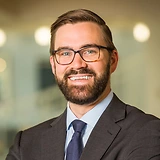IRS guidance issued last week delays the implementation of mandatory Roth catch-up contributions. As outlined in our blog post earlier this year, SECURE 2.0 amended the catch-up contribution provisions of the Code. The Act provided that, beginning in 2024, individuals eligible to make catch-up contributions who made over $145,000 (indexed in future years) in wages in the previous year must designate catch-up contributions as Roth contributions (i.e., such individuals can no longer designate catch-up contributions as pre-tax contributions). Notice 2023-62 provides a two-year administrative transition period with respect to the Roth catch-up contribution requirement, effectively delaying the implementation deadline from 2024 to 2026.
The IRS Notice provides that until taxable years beginning after December 31, 2025, catch-up contributions will be treated as satisfying the requirements of the Code (as amended by SECURE 2.0), even if the catch-up contributions are not designated as Roth contributions. Likewise, a plan will not violate the Code or the provisions of SECURE 2.0 if it provides for catch-up contributions but does not permit any contributions to be designated as Roth contributions. In other words, plans may continue to administer catch-up contributions as they were prior to SECURE 2.0 and without regard to the new Roth requirement until 2026.
The IRS Notice is not all that we will hear from the IRS on catch-up contributions; the Notice provides that the IRS intends to issue guidance in the future on Roth catch-up contributions, including clarifications on wages applicable to the $145,000 limit, the approval for plans to treat participant elections for pre-tax catch-up contributions as Roth catch-up contributions, and the application of the new provision to multiple employer plans.
The delay to the effective date is welcome guidance for the benefits community. The Roth catch-up contribution provisions have led to a lot of anxiety for plan sponsors, payroll providers, and TPAs, and the delay provides plans and service providers time to implement systems to comply with the new IRS requirements on catch-up contributions. If you have any questions about implementing this or any other provision of SECURE 2.0, please contact any of Bricker Graydon’s Employee Benefits attorneys.

